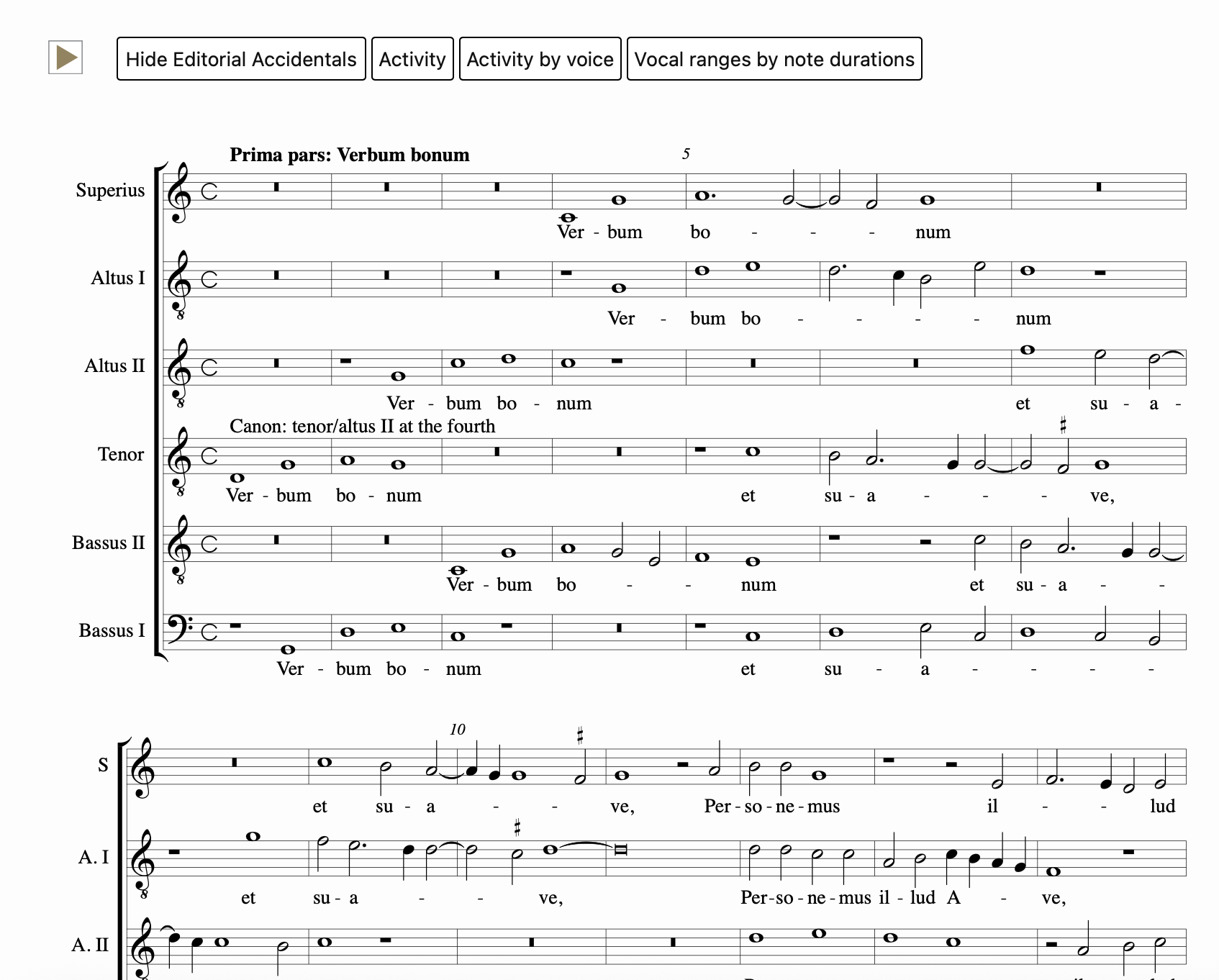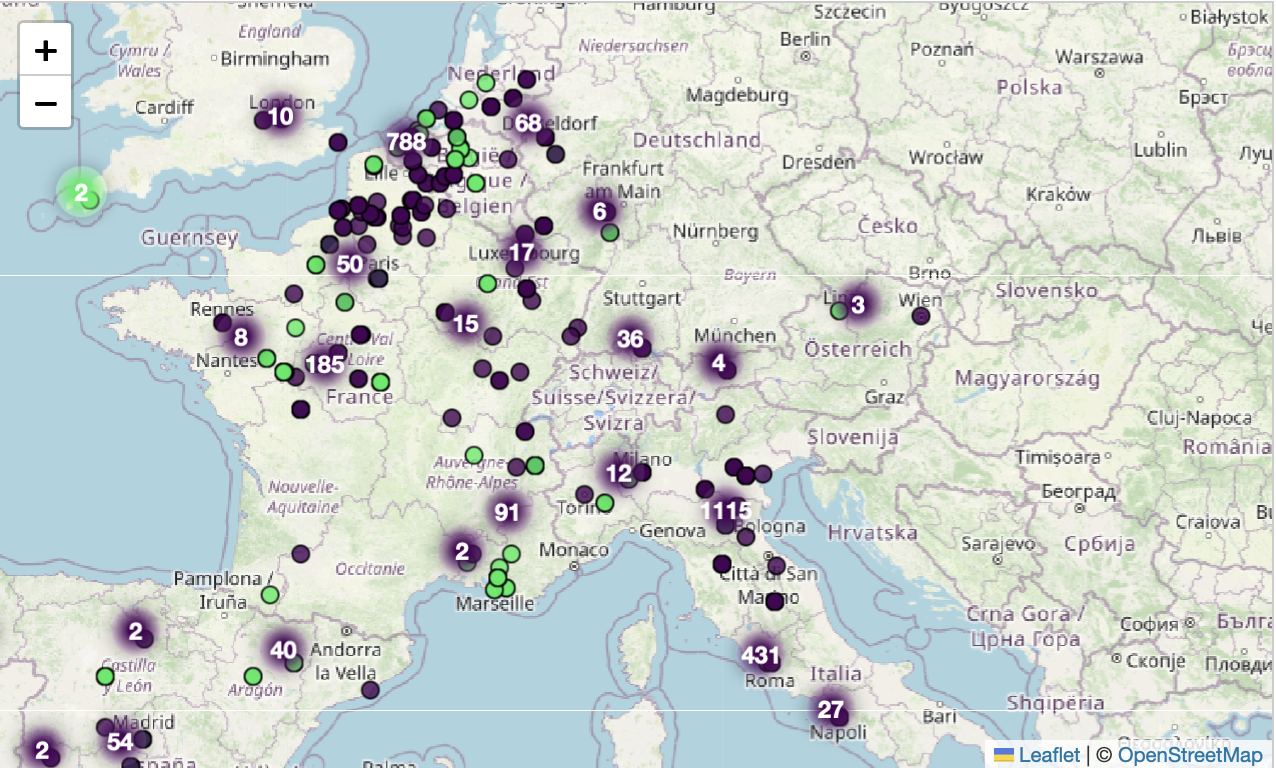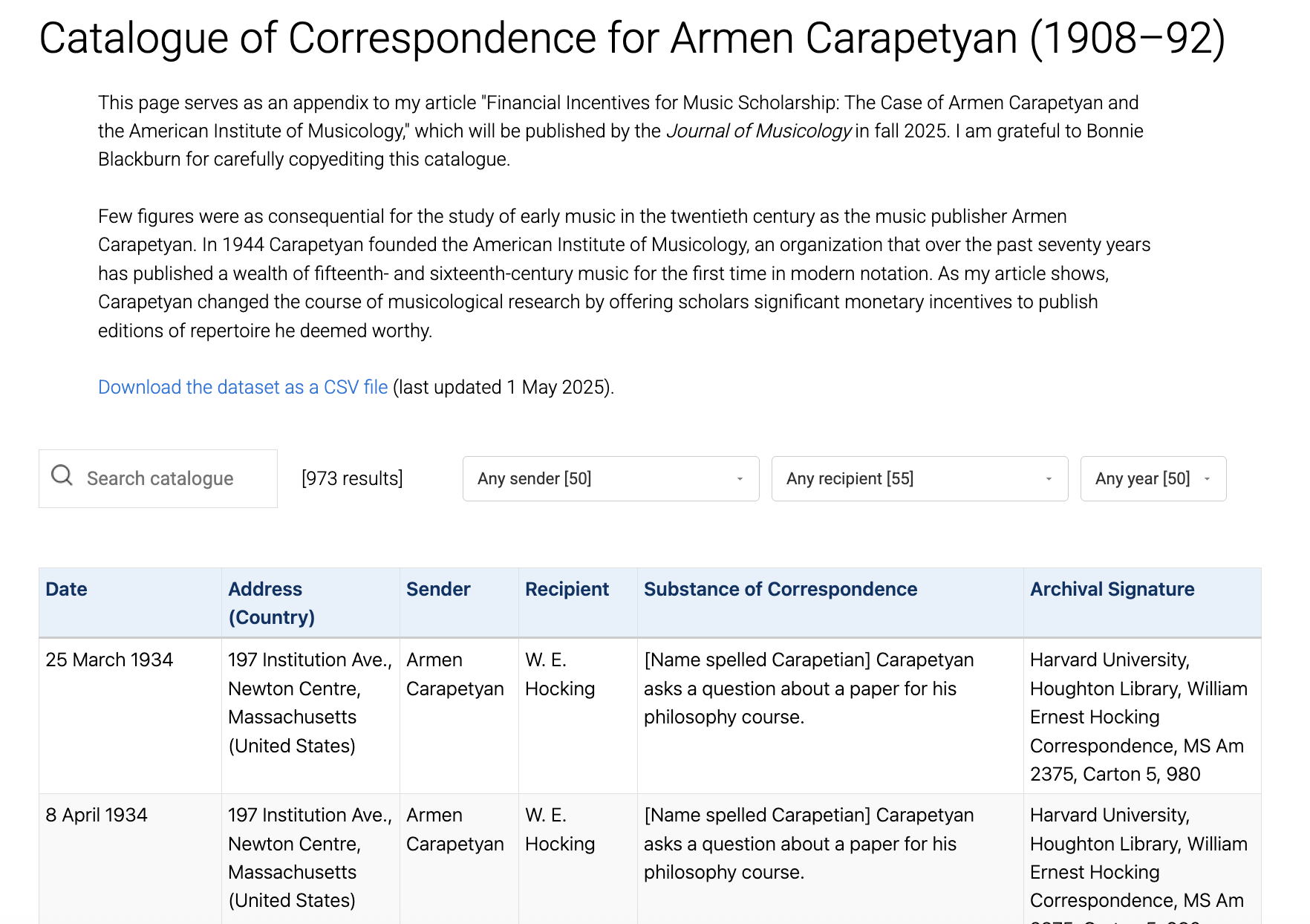research
sixteenth-century music

I'm the founder and director of The 1520s Project, an open-source repository of music from the early sixteenth century. The project aims to address how, when, and where a radically new style of polyphonic music emerged ca. 1520. The project features 500 scores (roughly 475,000 notes). Craig Sapp serves as technical director for the project, and I collaborate closely with Jesse Rodin and the Josquin Research Project. Together, the three of us received a 2023–24 Stanford VPDoR Large Propel Grant for our joint collaboration. In 2024 I won a Harvard Villa I Tatti Fellowship in the Digital Humanities for this project.
I'm also co-director (with Jesse Rodin and Emily Zazulia) of Mapping the Musical Renaissance, a project which visualizes connections and intersections between Renaissance figures through a novel mapping tool. We won a 2024 Stanford Humanities Seed Grant, which has allowed our team to catalogue more than 3,500 events and 1,000 musicians. I've led the technical development of our relational database and website.

historiography

My forthcoming article in the Journal of the American Musicological Society examines Edward Lowinsky and the New Josquin Edition.
A second forthcoming article in the Journal of Musicology explores the impact of Armen Carapetyan and the American Institute of Musicology. It builds on a catalogue I've compiled of more than 900 letters to and from the music publisher.
My postdoctoral project at KU Leuven examines important—if little studied—performances of medieval and Renaissance music that took place during the early twentieth century. These performances were critical for the development of the discipline of music history and for the formation of our modern, early-music canon.
Over the next few years, I'll be examining concert programs held in archives in Germany, the Netherlands, and Belgium, which will enable me to build a database of performances from ca. 1915–1960. This research is funded by the Fonds Wetenschappelijk Onderzoek in Belgium and has also been generously supported by the Ora Frishberg Saloman Fund of the American Musicological Society.
I collect archival materials relating to the history of musicology. My collection includes pages from a scrapbook of publicity materials for Gustave Reese's Music in the Middle Ages (1940), the original copy of Walter Gerstenberg's unpublished Habilitationsschrift, "Beiträge zur Problemgeschichte der evangelischen Kirchenmusik" (1935), and the collected papers for Peter Gradenwitz (1910–2001), a German-Israeli musicologist. I'd be happy to provide high-quality, publication-ready scans of these materials.

dissertation
My dissertation is accessible here through Stanford Libraries and ProQuest Dissertation & Theses Global. I’ve also compiled a list of errata.
abstract
This dissertation takes as its point of departure a problematic historiographical tradition. Even while recognizing that the death of the famous composer Josquin des Prez (1450–1521) marked a stylistic turning point, scholars working in Germany in the early twentieth century characterized the decades that followed, ca. 1520–50, as an aesthetic retrenchment, overstating Josquin’s influence and unwittingly lumping into the same generation sixteenth-century musicians who in fact worked at different times and in different stylistic idioms.
Relying on research in approximately thirty archives, this study reveals how a problematic narrative arose owing to nationalism, religious politics, interpersonal politics, the state of the field at the time, and the inaccessibility of primary source materials. The dissertation revisits composer biographies and the datings of central musical sources. And it uses comparative stylistic analyses of sacred polyphony to pinpoint how, when, and where a new style emerged ca. 1520. Placing writings that launched the modern historiographical tradition in dialogue with musical repertories central to the early history of musicology, the dissertation aims to give appropriate weight to a decisive shift in the history of music while also revealing the enduring influence of early German scholarship on the discipline as a whole.